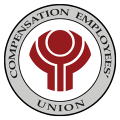Dean Lailey's story continued, When I first became a steward Toni Murray reached out to…

Committee Updates
Workload Committee Update
In 2019, CEU was able to negotiate the ability for Members, in certain classification
As you know, in the 2019 round of collective bargaining, we negotiated the Joint Workload Committee – a Committee comprised of CEU and WCB Representatives to discuss the workload concerns of our Members. This was the first workload language entered into the Collective Agreement after years of CEU workload proposals at successive rounds of collective bargaining. The Joint Workload Committee has now been meeting for approximately 1.5 years.
Workload Measurement Tool Used in Analysis of Case Managers’ Workload
Starting in Fall 2019, based on the language of the new LOU, we advocated for the selection of a classification and a work location for the Committee to initially study workload concerns. Based on feedback from the Membership, and with the Employer’s agreement, the Committee selected the Nanaimo office and the Vocational Rehab Consultant classification to analyze. CEU advocated at the Committee that to fully understand our Members’ realistic workload, a new workload measurement tool needed to be developed. It immediately became clear to us that to study both the Nanaimo location and the VRC role, the Committee also needed to understand the workload concerns of Case Managers, as they were interrelated.
Case Managers
Through our work on the Committee, a new CM workload measurement tool was developed by the Employer which measured over 30 different factors (including number of referrals on file; mental health complexities of the injured worker; reopenings etc). This was a stark departure from the previous Employer analysis of workload as driven by the sole factor of wage loss duration. Once the tool was developed, the Committee applied the tool to existing CM desks and found that there were peaks and unequal distribution of work both within offices and between offices. The tool demonstrated that, as the CEU had predicted, duration was not an adequate measurement of the workload demands placed on CMs. As a result, the Employer agreed to use the new workload measurement tool in future analysis and distribution of CM work. The Employer also posted new CM positions in 2019-2021. As a result of CEU’s request at the Committee, the Employer will be applying the measurement tool to CM offices and desks in the next 1-2 weeks so that the Committee can review current data understand where, and how many, high workload offices and desks exist.
Nanaimo office
Regarding the Nanaimo office, the Committee Union and Employer representatives met with the Staff in Nanaimo for an information session and to hear directly from the Members as to what and how the workload pressures were affecting them professionally and personally. As a result of the information provided by our Members, and an analysis of the data produced by the new workload measurement tool, the Employer agreed to transfer some work out of Nanaimo. CEU also advocated for an external mediator/facilitator to be hired by the Employer to become involved. The Employer agreed. The mediator/facilitator recently met, on a voluntary basis, individually with all interested Members (including those off on leaves), Managers, other Employer representatives, and Union representatives. Based on these interviews, the external facilitator/mediator is producing a report with recommendations (which is expected in the next few weeks). Once complete, the facilitator/mediator will present the report to all participants in a discussion forum.
Vocational Rehabilitation Consultants
The workload of the VRC classification is currently being analyzed by the Workload Committee. A new workload measurement tool has recently been developed specific to VRCs. The tool’s focus, in part, is on the assessment of the effort demands of claims and the heavy documentation drivers of workload. The tool will be applied in the upcoming weeks to the various VRC offices and desks. Based on that data, the Union can then advocate at the Committee for the Employer to alleviate the high workloads in a manner which is responsive to the information demonstrated by the tool results.
Current Feedback from CEU Members
Since the beginning of 2021, we have heard clearly from our Members that workload is, again, untenable. Many feel that it is as bad as, or perhaps worse than, pre-Covid days. We have heard this routinely from both Claims and Prevention. We have heard that widely from our Members that they are in response mode and that their pre-planned work can never be done. We have heard that our Members are working free hours before and after their scheduled workday (or scheduled week) and that their mental health and personal lives are suffering. This is reflected in current EFAP stats and in our Members usage of psychological services through the Pacific Blue Cross extended benefits plan. This is a stressful time in the world for all, and increasing, relentless workload is exacerbating the pressure.
Other Ongoing CEU Work
In response to our continual assertion that our Members are overworked and burning out, the Employer points to the work the parties have done at the Workload Committee and to the additional positions added to budget and filled over the past few years. And we consistently respond in all various meetings with Employer representatives that Members are still overworked. More needs to be done. WCB is under the direct control of Management. Many of our Members feel constantly under pressure to perform too many tasks and file work by unrealistic deadlines. There is often also a sense that there is no clear prioritization of work from Managers to Members. There are just additional items added without clear direction from Managers to the Members that “A” is the priority and “X, Y, and Z can stay on the backburner”.
This is exactly the feedback that was recently provided to Ms. Anne Naser in a recent hour-long meeting. We described all that we are hearing directly from our Members regarding their workload struggles. It was an excellent opportunity to speak frankly with the leadership of WCB. Ms. Naser was open to our feedback and committed to regular direct meetings with the CEU leadership. We will continue to provide honest, frank information to Ms. Naser and other WCB senior leaders about the workload problems our Members encounter. To this end, please ensure that you continue to discuss your workload concerns with your Stewards, CEU Business Representatives and Staff, CEU Executive Members, and/or with me directly.
Our Chief of Labour Relations & Operations has recently provided approximately 20 lunch time sessions to groups of interested Members about initiating Workload Campaigns. Workload Campaigns are used in nearly all unionized workplaces to address the frontline workload of overworked members. Campaigns are highly effective tools to achieving workload relief. And they allow members to take a direct role in addressing their workload problem alongside the work of the Union. A campaign is structured and supported by the Union and typically involves workers refusing to provide free work, refusing to provide voluntary overtime, and demanding the Employer own the workload problem of the organization (instead of the Members’ owning the problem). If you and a group of your colleagues in a work location (or in a classification) are interested in learning about initiating a Workload Campaign, please contact your CEU Business Representative or Chair of the Shop Stewards, Debbie Naidu, for further information and scheduling.
As is customary in the year preceding bargaining, CEU will be sending a Bargaining Survey to all Members this Fall. You can expect that a large portion of the Survey will include requests for information and your opinion on various workload-related items. Please participate in the survey in Fall 2021 as this is a direct avenue to provide details of your concerns, workload and otherwise, to the Union. Every survey is read by Kristy Child and me and they form the basis of the CEU Bargaining Agenda.
And finally, while workload may not be an issue for some Members, solidarity is very important and it is imperative that we all support those who we know are struggling. This is true across all aspects of our lives. For Members who feel overwhelmed, or who may need some mental health support, please reach out to EFAP or use the counselling services benefit, which was increased to $2,400 per year in the last Collective Agreement.
In solidarity,
– Laura Snow, President
Women’s Committee
The CEU Women’s Committee is a GO!
Participate to Win a Prize!
After a long hiatus, the CEU Women’s Committee has been revived! With so many challenges facing women, especially as we come out of the pandemic and face she-covery ahead, it is important that women’s voices are heard. To this end, four of the CEU Executive members met to do some preliminary work to restart the CEU Women’s Committee.
PRIZES – Your input is crucial in guiding which issues the CEU Women’s Committee focuses on. Submit your ideas for consideration and your name will go into the draw for one of three CEU prizes.
CEU Executive members, Kerry-Ann, Toni, Debbie, and Laura, met on April 14 to do some initial set up work and will meet again before the month is over. Your participation is most welcome so if you are interested in joining the CEU Women’s Committee please reach out to Laura Snow (ac.cb.uec@wonsarual)
Some things they are working on are:
- The terms of reference for the committee
- The name of the committee (it should be more inclusive)
- Make up of committee:
- Executive Board member
- Three General members
- One from the interior
- One from the Island
- One from the lower mainland
- Two Shop Stewards
- One from the lower mainland
- One from another area of the province
- How to best gather information from women in the membership to see what issues they are finding challenging.
The committee is researching and reading about how other women’s committees support their members and listening to your feedback and input, so that they can focus on the issues and challenges that are most important to you.
PRIZES – Your input is crucial in guiding which issues the CEU Women’s Committee focuses on. Submit your ideas for consideration and your name will go into the draw for one of three CEU prizes.
